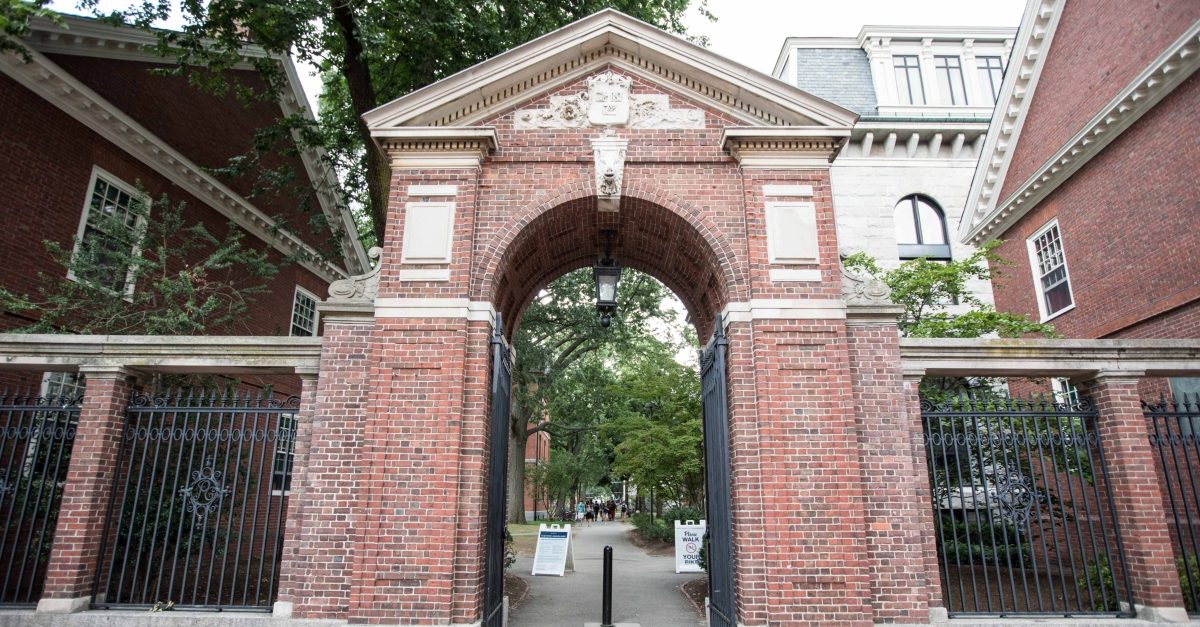
The Department of Justice on Tuesday submitted a federal court brief contending that Harvard University’s use of race in its admissions process violates federal civil rights law as well as Supreme Court precedent. The DOJ sided with a group representing Asian American applicants who were rejected by the prestigious university.
“As Harvard undisputedly considers applicants’ race when selecting its incoming freshman class, it bore the burden at trial of proving that its consideration of race in the admissions process is narrowly tailored to a cognizable compelling interest,” the DOJ wrote. “Yet the unvarnished record shows that Harvard’s use of race is hardly tailored at all.”
The Justice Department is backing the non-profit group, Students for Fair Admissions (SFFA), which last week appealed a lower court’s decision. That decision found that the university’s use of race in the admission process did not discriminate against Asian Americans, which made up approximately 25-percent of the incoming freshman class. The lower court reasoned that the institution was entitled to take certain measures towards ensuring a diverse learning environment.
SFFA is led by conservative legal strategist Edward Blum, known for his decades-long battle against affirmative action. Though he’s been a part of several race-related federal lawsuits, he is perhaps best known for his work with Abigail Fisher, who claimed that her rejection from the University of Texas Austin was due to her being white.
According to the DOJ, Harvard’s use of applicant’s race falls outside the parameters set by the Supreme Court in Fisher v. Texas. The high court held that schools were permitted to consider an applicant’s race if it could show that such consideration was the only way to achieve diversity in its student body.
“The school considers applicants’ race at virtually every step, from rating applicants to winnowing the field of applicants when attempting to avoid an oversubscribed class,” the DOJ argued. “And its inclusion of race in the analysis frequently makes a dispositive difference. The district court found that Harvard’s use of race was ‘determinative’ for ‘approximately 45% of all admitted African American and Hispanic applicants.’”
The Government’s argument takes direct aim at the lower court’s previous ruling, claiming it credited Harvard’s assurance that it does not employ racial biases despite “various holes” in the evidence and conflicting expert testimony.
“Race discrimination hurts people and is never benign,” Assistant Attorney General for the Civil Rights Division Eric Dreiband said in a statement Tuesday. “Unconstitutionally partitioning Americans into racial and ethnic blocs harms all involved by fostering stereotypes, bitterness, and division among the American people. The Department of Justice will continue to fight against illegal race discrimination.”
In her 130-page decision issued in October, U.S. District Judge Allison Burroughs wrote that Harvard’s admissions program “’bears the hallmarks of a narrowly tailored plan’ in that ‘race [is] used in a flexible, nonmechanical way’ and considered ‘as a ‘plus’ factor in the context of individualized consideration of each and every applicant […] Harvard ‘engages in a highly individualized, holistic review of each applicant’s file, giving serious consideration to all the ways an applicant might contribute to a diverse educational environment.’”
Read the full brief below.
DOJ Harvard Amicus by Law&Crime on Scribd
[image via Scott Eisen_Getty Images]